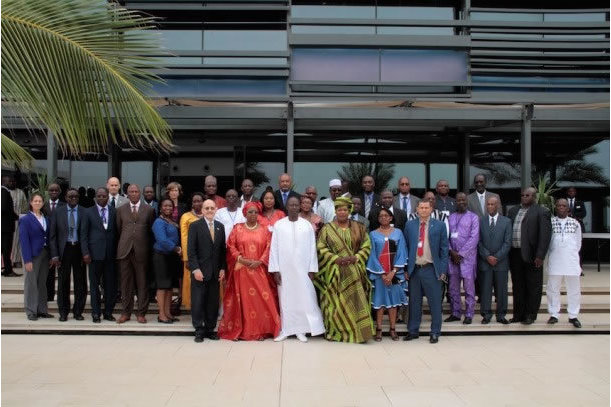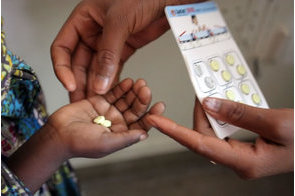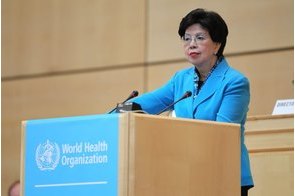West African leaders pledge to implement integrated approach to public health

Summary
By taking an integrated approach, communities can identify outbreaks in animals before they spread to humans.
Policymakers, public health experts and advocates from West Africa and around the world renewed their commitment to work together to prevent – and respond early to – public health threats across West Africa. The pledge was made at the end of the West African Regional Conference on One Health, which held in Dakar, Senegal, on November 8-11. According to a statement released today by the World Health Organisation (WHO), ‘One Health’ is an approach that calls on policymakers and health practitioners to take into account the inextricable link between the health of humans, animals and their environments when designing public health systems, research and programmes.
The collaboration comes as the region approaches the three year mark since the first Ebola case in the recent outbreak in West Africa. WHO said in recent years, 75 per cent of emerging infectious diseases have originated in animals or animal products. It is believed that Ebola spread to a young boy in rural Guinea from an infected animal, sparking an epidemic that infected more than 28,000 people, including in the capital cities of six West African countries.
"Disease outbreaks and public health crises – many of which began in animals – have taken lives and livelihoods, severely impacted our industries and economies, and taken a serious toll on our already-stretched public health workforces," said Dr Matshidiso Moeti, the World Health Organization Regional Director for Africa. "With so much at stake, the world simply cannot afford to take a crisis-by-crisis approach to health security. Strong systems and coordinated efforts are needed - both within and between countries - to detect, report and control the spread of diseases that affect animals and humans."
By taking an integrated approach to public health, communities and countries can identify outbreaks in animals before they spread to humans, the World Health Organisation said. The conference is said to be the strongest political commitment to One Health in West Africa to date. 38 ministers from 16 countries in West Africa endorsed a communiqué, pledging their commitment to implement the One Health approach both within and across countries. The specialized agency of the United Nations said the commitment is a critical step forward toward implementing the WHO's Regional Strategy on Health Security and Emergencies 2016-2020, which was agreed upon at the 66th session of the WHO Regional Committee for Africa in Addis Ababa, Ethiopia, in August.
Currently, the region is tackling outbreaks of several zoonotic diseases, such as avian influenza in poultry in Cameroon and Nigeria and Rift Valley fever in Niger, as well as vector-borne public health threats, such as the recent emergence of the Zika virus strain from Brazil in Cabo Verde and Guinea-Bissau. These diseases, WHO said, impact not only health, but also food security and economic security. For example, the Ebola outbreak cost Guinea, Liberia and Sierra Leone nearly $600 million in lost gross domestic product, and avian influenza has cost the region tens of billions of dollars since 2013.
Additionally, the overuse and misuse of antibiotics in animals and crops is resulting in the emergence of antibiotic-resistant disease pathogens – which is rendering common infectious diseases and bacterial infections more difficult and expensive to treat. The approach of incorporating human, animal and environmental health helps to keep these medicines effective by more carefully and diligently managing their use.
The communiqué signed by ministers will help bolster the regional coordination and strong systems that are needed to help prevent and stop disease outbreaks. Specifically, Member States party to the agreement have pledged to carry out national risk assessments and set up alert mechanisms for both common and emerging disease outbreaks within their territories. Governments will be tasked with integrating laboratories for human and animal samples to improve the timely diagnosis of diseases and track the spread of drug-resistant pathogens at the national level – a crucial step in the fight against antimicrobial resistance (AMR).
The conference was hosted by WHO's Regional Office for Africa and the Economic Community of West African States (ECOWAS) Commission, in collaboration with other regional and international partners.
Related
-
Malaria’s deadly comeback
Artemisinin resistance could move into India and onward to Sub-Saharan Africa and the rest of the world, putting millions ...
-
New report signals country progress in the path to malaria elimination
Across sub-Saharan Africa, the prevention of new cases of malaria has resulted in major cost savings for endemic countries.
-
Access Bank joins private sector coalition for health care delivery in Africa
As part of Access Bank's commitment to lead global best practices in sustainable finance in Nigeria and Africa, the bank ...










